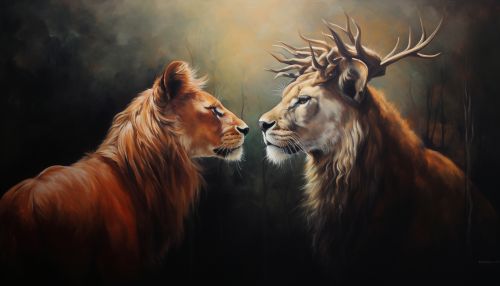Cognitive Ethology
Overview
Cognitive ethology is a branch of ethology that focuses on the study of cognitive processes in animals, particularly in relation to their natural behaviors and environments. It combines elements of traditional ethology with cognitive psychology, aiming to understand how animals perceive, process, and act upon information in their environment.


History
The term "cognitive ethology" was first coined by Donald Griffin in the 1970s, who argued for the recognition of cognitive processes in animals. This was a significant departure from the prevailing behaviorist approach of the time, which emphasized observable behaviors over internal mental states. Griffin's work sparked considerable debate and controversy, but ultimately led to a greater appreciation of the complexity of animal cognition.
Methodology
Cognitive ethologists employ a variety of methods to study animal cognition, including observational studies, controlled experiments, and comparative analyses. They often use a combination of these methods to gain a comprehensive understanding of an animal's cognitive abilities.


Key Concepts
Animal Cognition
At the heart of cognitive ethology is the study of animal cognition, which involves understanding how animals acquire, process, store, and act on information from their environment. This includes studying various aspects of cognition such as perception, learning, memory, and decision making.
Consciousness
A central question in cognitive ethology is whether animals possess consciousness, and if so, to what extent. While it is difficult to directly measure consciousness in animals, cognitive ethologists use various indirect methods to infer its presence, such as studying self-awareness, problem-solving abilities, and complex social behaviors.
Animal Communication
Cognitive ethology also investigates animal communication, exploring how animals use signals to convey information to each other. This can involve studying vocalizations, body language, chemical signals, and other forms of communication.


Applications
The findings of cognitive ethology have numerous applications, from improving animal welfare and conservation efforts, to informing our understanding of human cognition and behavior.
Animal Welfare
By understanding how animals think and perceive the world, cognitive ethology can help improve animal welfare. For example, it can inform the design of environments that meet the cognitive needs of animals in captivity, and can help identify signs of stress or discomfort in animals.
Conservation
Cognitive ethology can also contribute to conservation efforts. By understanding the cognitive abilities of endangered species, conservationists can develop more effective strategies for their protection and recovery.
Human Cognition
Finally, studying animal cognition can provide insights into human cognition. By comparing the cognitive abilities of humans and other animals, cognitive ethologists can shed light on the evolutionary origins of human cognitive traits.


Criticisms and Controversies
Despite its many contributions, cognitive ethology has also faced criticisms and controversies. Some critics argue that it is difficult to infer cognitive processes from observed behaviors, while others question the validity of comparing animal cognition to human cognition. These debates continue to shape the field and drive its ongoing development.
